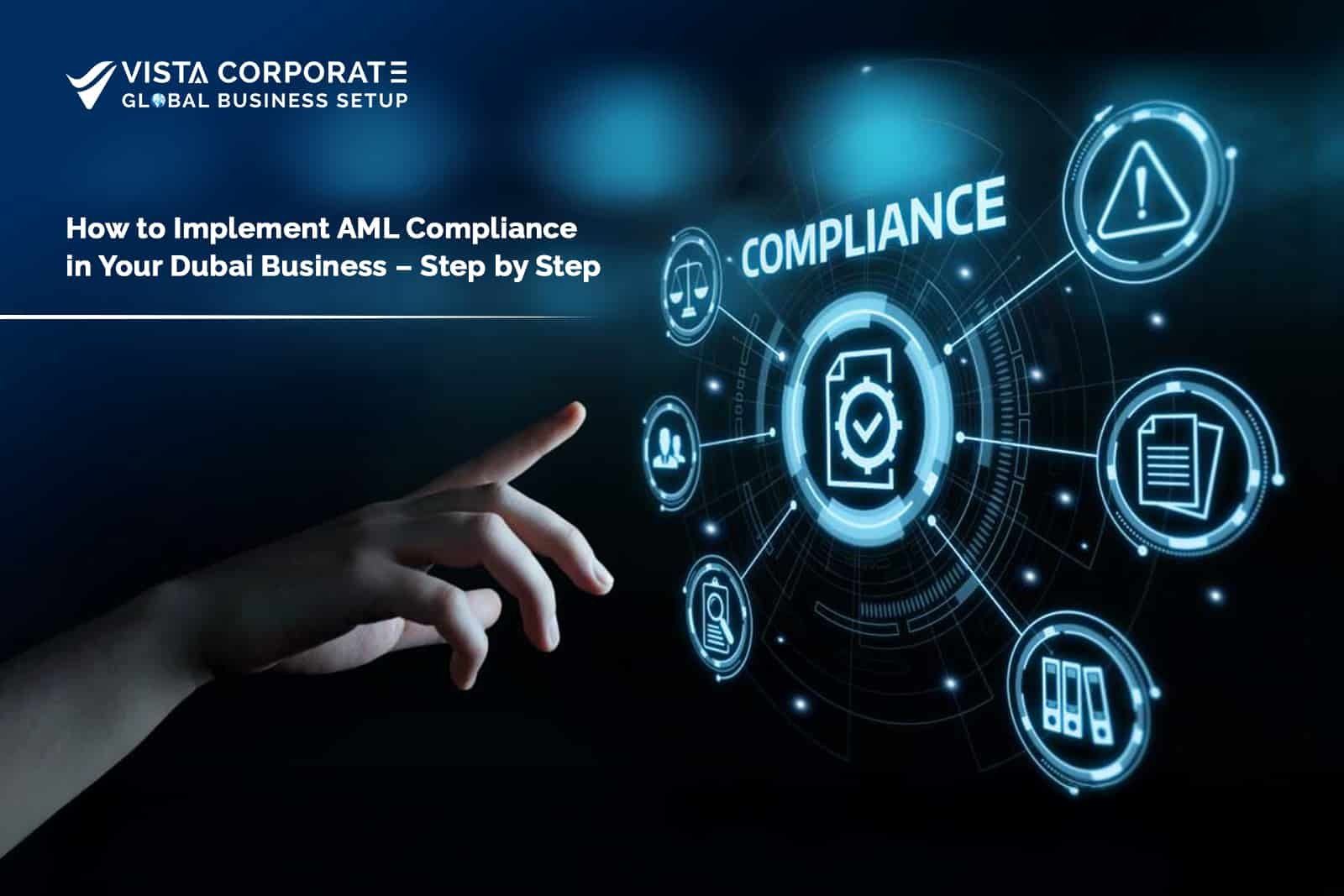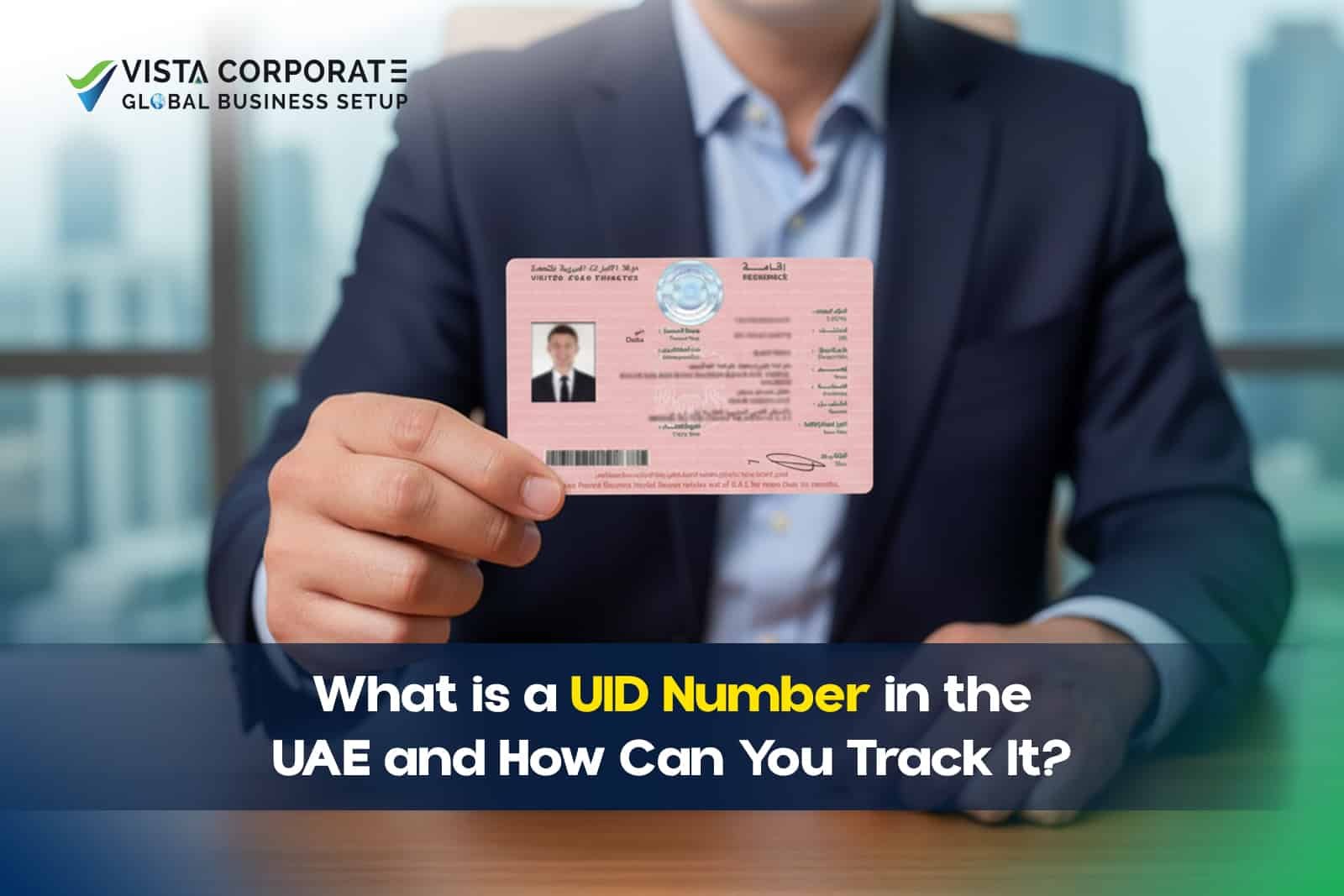
Understanding AML Compliance Requirements in Dubai
Anti-Money Laundering (AML) compliance has become a critical business requirement for companies operating in Dubai and the broader UAE. AML compliance refers to the comprehensive set of policies, procedures, and controls that businesses must implement to prevent their services from being used for money laundering or terrorist financing activities.
The importance of AML compliance in Dubai cannot be overstated, particularly following the UAE’s successful removal from the Financial Action Task Force (FATF) grey list in February 2024. This achievement demonstrates the country’s commitment to international standards and creates a more favorable business environment for legitimate enterprises operating in the region.
Dubai businesses must understand that AML compliance is not merely a regulatory checkbox but a fundamental business practice that protects against financial crimes, enhances reputation, and ensures continued access to global financial markets. The regulatory framework applies to various business sectors, including real estate, precious metals and stones dealers, legal professionals, and corporate service providers, collectively known as Designated Non-Financial Businesses and Professions (DNFBPs).
Effective AML implementation helps businesses identify and report suspicious activities, maintain proper customer records, and contribute to the UAE’s broader efforts in combating financial crimes while ensuring sustainable business growth in Dubai’s dynamic market environment.
Legal Framework and Regulatory Authorities in UAE
The UAE’s AML compliance framework is built upon a robust legal foundation that has evolved significantly to meet international standards and expectations. The cornerstone of this framework is Federal Decree-Law No. 20 of 2018 on Anti-Money Laundering and Combating the Financing of Terrorism, which establishes comprehensive requirements for businesses and individuals operating within the UAE.
This federal legislation is supported by various regulatory authorities that oversee different aspects of AML compliance implementation. The Central Bank of the UAE (CBUAE) serves as the primary regulatory authority for financial institutions and issues detailed guidelines for AML and CFT compliance. The Ministry of Economy (MoE) holds responsibility for supervising DNFBPs and manages the national AML registration system through the go AML portal.
The Dubai Financial Services Authority (DFSA) maintains oversight for entities operating within the Dubai International Financial Centre, while the Financial Intelligence Unit (FIU) serves as the central agency for receiving, analyzing, and disseminating suspicious transaction reports. Each emirate also has local authorities that may impose additional requirements specific to their jurisdictions.
The regulatory framework incorporates risk-based approaches aligned with FATF recommendations, requiring businesses to implement proportionate measures based on their assessed money laundering and terrorist financing risks. Regular updates to regulations ensure the UAE maintains its position as a compliant jurisdiction while supporting legitimate business activities and international trade relationships.
Who Must Comply with AML Regulations in Dubai
AML compliance requirements in Dubai extend beyond traditional financial institutions to encompass a broad range of business sectors that handle significant financial transactions or provide services susceptible to money laundering activities. The primary categories of businesses required to comply are Designated Non-Financial Businesses and Professions (DNFBPs), which include real estate companies, precious metals and stones dealers, legal professionals, and corporate service providers.
Real estate companies must implement AML compliance when dealing with property transactions above specified thresholds, while precious metals and stones dealers face obligations for cash transactions and high-value sales. Legal professionals, including lawyers and notaries, must comply when providing services related to company formation, trust administration, or property transactions.
Corporate service providers offering business setup, virtual office services, or nominee director services also fall under AML requirements. Additionally, accounting and audit firms providing certain services to clients must establish compliance frameworks appropriate to their risk exposure.
Free zone entities and mainland companies alike must ensure compliance with UAE AML regulations, regardless of their business structure or location within Dubai. The scope of compliance varies based on business activities, transaction volumes, and customer risk profiles, requiring tailored approaches for different sectors.
12-Step AML Implementation Process for Dubai Businesses
Implementing effective AML compliance requires a systematic approach that addresses all regulatory requirements while establishing sustainable business practices. This comprehensive 12-step process guides Dubai businesses through complete compliance implementation, ensuring adherence to UAE regulations and international standards.
Step 1 – Conduct Enterprise-Wide Risk Assessment
The foundation of any successful AML program begins with a thorough Enterprise-Wide Risk Assessment that identifies potential money laundering and terrorist financing risks specific to your business operations. This assessment must evaluate customer risk factors, including geographic locations, business relationships, and transaction patterns that may indicate higher risk exposure.
Businesses must analyze their products and services to determine inherent risks, considering factors such as transaction volumes, customer demographics, and delivery channels. Geographic risk assessment involves examining the countries and regions where customers are located, with particular attention to high-risk jurisdictions identified by international bodies like FATF.
The risk assessment should also evaluate operational risks, including staff expertise, internal controls effectiveness, and technology capabilities. Documentation of the risk assessment process and findings is essential, as regulators expect businesses to demonstrate their understanding of specific risks and the rationale behind their risk mitigation strategies.
Step 2 – Appoint Qualified AML Compliance Officer
UAE regulations mandate the appointment of a qualified AML Compliance Officer who possesses appropriate knowledge, experience, and authority to oversee the compliance program. The compliance officer must hold relevant qualifications in AML, financial crime prevention, or related fields, with demonstrable experience in compliance management.
Key responsibilities include developing and maintaining AML policies, conducting staff training, overseeing suspicious transaction reporting, and serving as the primary point of contact with regulatory authorities. The officer must have direct access to senior management and sufficient resources to perform their duties effectively.
Regular training and professional development ensure the compliance officer remains current with regulatory changes and industry best practices. The appointment must be formally documented and communicated to relevant authorities through the goAML portal registration process.
Step 3 – Develop AML Policies and Procedures
Comprehensive AML policies and procedures form the operational backbone of compliance programs, providing clear guidance for staff on identifying, assessing, and managing money laundering risks. These documents must be tailored to specific business activities and risk profiles while incorporating all relevant regulatory requirements.
Policies should address customer due diligence procedures, transaction monitoring protocols, suspicious activity reporting processes, and record keeping obligations. Procedures must include step-by-step instructions for implementing policies, with clear escalation paths and decision-making criteria for various scenarios.
Board approval and senior management endorsement demonstrate organizational commitment to AML compliance. Regular review and update mechanisms ensure policies remain current with regulatory changes and evolving business practices, with documented evidence of periodic reviews and management approval of updates.
Step 4 – Implement Customer Due Diligence Procedures
Customer Due Diligence (CDD) represents a core component of AML compliance, requiring businesses to verify customer identities, understand business relationships, and assess ongoing risks. Standard CDD procedures include collecting and verifying customer identification documents, understanding the purpose and intended nature of business relationships, and conducting ongoing monitoring of transactions.
Enhanced Due Diligence (EDD) applies to higher-risk customers, including Politically Exposed Persons (PEPs), customers from high-risk countries, and complex business structures. EDD measures may include additional documentation requirements, senior management approval for new relationships, and enhanced ongoing monitoring procedures.
Simplified Due Diligence may apply to lower-risk customers, subject to regulatory approval and documented risk assessments. Ongoing monitoring ensures customer information remains current and transactions align with expected patterns based on known customer profiles and business activities.
Step 5 – Register with goAML Portal
The goAML portal serves as the UAE’s central platform for AML compliance registration and suspicious transaction reporting. Businesses must complete the registration process by submitting required documentation, including business licenses, compliance officer appointments, and organizational structure information.
The registration process involves creating user accounts, uploading supporting documents, and completing detailed questionnaires about business activities and risk assessments. Businesses must ensure accuracy and completeness of submitted information, as regulatory authorities use this data for supervisory purposes.
Timely submission of registration materials prevents compliance gaps and potential penalties. The portal also serves as the primary channel for submitting periodic reports and communicating with regulatory authorities regarding compliance matters.
Step 6 – Establish Transaction Monitoring Systems
Effective transaction monitoring systems identify unusual or suspicious activity patterns that may indicate money laundering or terrorist financing. These systems must be calibrated to generate meaningful alerts while minimizing false positives that strain investigative resources.
Monitoring parameters should reflect business-specific risk factors, customer profiles, and transaction characteristics typical for the industry. Alert thresholds and scenarios must be documented and regularly reviewed to ensure continued effectiveness as business volumes and customer bases evolve.
Investigation procedures for generated alerts must include documented analysis processes, escalation criteria, and decision-making frameworks for determining whether suspicious activity reporting is required. Technology solutions can enhance monitoring effectiveness, but human oversight remains essential for proper alert investigation and disposition.
Step 7 – Implement Sanctions Screening Procedures
Sanctions screening ensures businesses do not engage with individuals or entities subject to international or UAE sanctions. Screening procedures must cover customers, beneficial owners, business partners, and counterparties in transactions, with regular updates reflecting changes to sanctions lists.
Automated screening systems enhance efficiency and accuracy, but manual processes remain acceptable for smaller businesses with appropriate controls. Match investigation procedures must distinguish between true matches and false positives, with documented decision-making processes and escalation procedures for confirmed matches.
Record keeping for sanctions screening activities demonstrates compliance efforts and supports regulatory examinations. Regular testing and validation of screening systems ensure continued effectiveness and alignment with current sanctions lists.
Step 8 – Develop Suspicious Activity Reporting Process
Suspicious Activity Reporting (SAR) processes enable businesses to report potentially criminal activity to the Financial Intelligence Unit through the goAML portal. Staff training ensures personnel can identify suspicious activity indicators relevant to their business activities and customer interactions.
Reporting timelines are critical, with UAE regulations specifying prompt reporting requirements for identified suspicious activities. Internal escalation procedures should ensure compliance officers receive timely notification of potential suspicious activities to enable proper evaluation and reporting decisions.
Documentation standards for SAR decisions protect businesses and provide evidence of compliance efforts. Regular review of SAR processes and outcomes helps refine suspicious activity indicators and improve detection capabilities over time.
Step 9 – Establish Record Keeping Systems
Comprehensive record keeping systems maintain documentation required for regulatory compliance and support potential investigations. Customer identification records, transaction documents, and compliance documentation must be retained for specified periods, typically five years from the end of business relationships or completion of transactions.
Storage systems must ensure document integrity, accessibility, and confidentiality while protecting against unauthorized access or alteration. Digital storage solutions offer efficiency advantages but must include appropriate backup and security measures to prevent data loss or compromise.
Access controls limit record access to authorized personnel with legitimate business needs. Regular audits of record keeping systems verify compliance with retention requirements and identify any gaps or deficiencies requiring corrective action.
Step 10 – Conduct Staff Training Programs
Comprehensive staff training ensures personnel understand their AML compliance responsibilities and can effectively implement required procedures. Training programs must cover regulatory requirements, internal policies and procedures, suspicious activity recognition, and reporting obligations specific to employee roles and responsibilities.
Training frequency should reflect business risk levels and regulatory requirements, with new employee orientation and periodic refresher training for existing staff. Assessment procedures verify training effectiveness and identify areas requiring additional focus or clarification.
Documentation requirements include training records, attendance verification, and assessment results to demonstrate compliance with training obligations. Regular updates to training materials ensure content remains current with regulatory changes and emerging risks.
Step 11 – Implement Ongoing Monitoring Procedures
Ongoing monitoring ensures customer relationships and transaction patterns remain consistent with expected activity based on known customer profiles and business purposes. Monitoring procedures should identify changes in customer behavior, transaction patterns, or risk profiles that may require additional due diligence or investigation.
Risk reassessment triggers include significant changes in customer circumstances, business activities, or geographic exposure. Update mechanisms ensure customer information and risk assessments remain current and accurate throughout business relationships.
Periodic reviews of customer files and transaction histories help identify gradual changes that might not trigger immediate alerts but represent evolving risks over time. Documentation of ongoing monitoring activities supports regulatory examinations and demonstrates continued compliance efforts.
Step 12 – Establish Internal Audit and Review Process
Independent audit and review processes verify AML compliance program effectiveness and identify areas requiring improvement. Internal audits should be conducted by personnel independent of compliance program implementation, with appropriate expertise in AML requirements and risk assessment methodologies.
Audit scope should cover all aspects of the compliance program, including risk assessments, policies and procedures, customer due diligence, transaction monitoring, and staff training. Regular audit schedules ensure systematic coverage of compliance program components while allowing for risk-based focus on higher-risk areas.
Corrective action procedures address identified deficiencies promptly and effectively, with management reporting that ensures senior leadership oversight of compliance program performance. Follow-up procedures verify implementation of corrective actions and sustained improvement in compliance effectiveness.
Industry-Specific AML Compliance Requirements
Different business sectors in Dubai face varying AML compliance obligations based on their specific activities, risk exposures, and regulatory classifications. Understanding these industry-specific requirements ensures businesses implement appropriate controls and procedures tailored to their operational realities.
Real Estate AML Compliance in Dubai
Real estate companies in Dubai must implement comprehensive AML measures for property transactions exceeding specified thresholds, typically involving cash payments or high-value transactions. Customer identification procedures must verify the identity of buyers, sellers, and beneficial owners of purchasing entities, with particular attention to complex ownership structures that may obscure true ownership.
Property transaction monitoring focuses on unusual payment methods, rapid successive transactions, or purchases significantly above or below market values. Enhanced due diligence applies to transactions involving PEPs, non-resident buyers, or properties in high-risk locations.
Record keeping obligations require maintaining detailed transaction documentation, customer identification records, and beneficial ownership information for minimum periods specified by UAE regulations. Real estate professionals must also report suspicious activities promptly through the goAML portal when transactions exhibit unusual characteristics.
Precious Metals and Stones Dealers Compliance
Dealers in precious metals, stones, and jewelry face specific obligations related to cash transaction limits and customer verification requirements. Cash transactions above regulatory thresholds trigger enhanced customer identification and reporting obligations, requiring detailed documentation of transaction purposes and funding sources.
Customer verification procedures must include identity confirmation, source of funds verification, and beneficial ownership identification for corporate purchasers. Dealers must maintain comprehensive records of high-value transactions, including detailed descriptions of purchased items, payment methods, and customer information.
Suspicious activity indicators specific to precious metals trading include purchases inconsistent with customer profiles, unusual payment arrangements, or transactions involving sanctioned jurisdictions. Regular training ensures staff can recognize industry-specific suspicious activities and comply with reporting obligations.
Legal and Corporate Service Providers Requirements
Legal professionals and corporate service providers face AML obligations when offering services related to company formation, trust administration, or significant transactions. Client due diligence procedures must verify beneficial ownership of legal entities while respecting professional privilege limitations where applicable.
Trust and company formation monitoring requires understanding the purposes of established structures and ongoing oversight of activities to ensure consistency with stated business objectives. Enhanced scrutiny applies to complex structures involving multiple jurisdictions or unclear beneficial ownership arrangements.
Professional services firms must balance AML compliance obligations with professional confidentiality requirements, implementing procedures that satisfy regulatory expectations while protecting legitimate client interests. For businesses seeking comprehensive support with industry-specific AML implementation, specialized consulting services like those offered by VistaCorp (www.thevistacorp.com) provide expert guidance tailored to specific business sectors and regulatory requirements.
Technology and Tools for AML Implementation
Modern AML compliance increasingly relies on technology solutions to manage complex requirements efficiently while reducing operational costs and human error risks. AML software solutions range from comprehensive platforms offering integrated compliance management to specialized tools focusing on specific functions like transaction monitoring or sanctions screening.
Transaction monitoring systems utilize rule-based algorithms and machine learning to identify unusual activity patterns, generating alerts for investigation while minimizing false positives through sophisticated calibration. Advanced systems incorporate behavioral analytics that learn normal customer patterns and flag deviations that may indicate suspicious activities.
Automated screening solutions compare customer information against sanctions lists, PEP databases, and adverse media sources in real-time, ensuring comprehensive coverage while maintaining operational efficiency. These systems require regular updates to reflect changing sanctions regimes and emerging risks.
Reporting platforms streamline suspicious activity reporting through the goAML portal, providing templates, workflow management, and audit trails that enhance compliance documentation. Cloud-based solutions offer scalability advantages for growing businesses while reducing infrastructure investment requirements.
Cost-benefit analysis reveals that technology investments typically reduce long-term compliance costs through automation, improved accuracy, and enhanced regulatory examination outcomes. However, businesses must carefully evaluate solutions to ensure alignment with their specific risk profiles, transaction volumes, and regulatory requirements. Integration considerations include data security, system compatibility, staff training requirements, and ongoing maintenance costs.
Timeline and Implementation Planning
Successful AML compliance implementation requires structured planning with realistic timelines that accommodate business operations while meeting regulatory deadlines. A typical implementation timeline spans 3-6 months for comprehensive programs, depending on business complexity, existing controls, and resource availability.
Phase-wise implementation begins with risk assessment and policy development during the first 4-6 weeks, followed by system implementation and staff training over the subsequent 6-8 weeks. The final phase involves testing, documentation review, and goAML portal registration, requiring an additional 4-6 weeks for completion.
Critical milestone identification includes risk assessment completion, compliance officer appointment, policy approval, system deployment, staff training completion, and regulatory registration. Each milestone requires specific deliverables and stakeholder approvals to ensure project progression.
Resource allocation planning must account for internal staff time, external consultant fees, technology costs, and training expenses. Project management approaches help coordinate multiple implementation streams while maintaining business continuity during the transition period.
Progress monitoring mechanisms include regular status reviews, milestone tracking, and issue resolution processes that ensure timely completion. Contingency planning addresses potential delays or challenges that may impact implementation schedules, ensuring businesses meet regulatory compliance deadlines.
Common Challenges and Solutions in AML Implementation
Dubai businesses frequently encounter implementation challenges that can delay compliance programs or reduce their effectiveness. Understanding these common obstacles and proven solutions helps organizations navigate the implementation process more successfully.
Resource constraints represent the most frequent challenge, particularly for smaller businesses lacking dedicated compliance personnel or sufficient budgets for comprehensive programs. Solutions include phased implementation approaches that spread costs over time, shared service arrangements with other businesses, or engaging external consultants for specific expertise areas.
Technology integration issues arise when existing systems cannot accommodate AML requirements or when multiple platforms create operational complexity. Effective solutions involve conducting thorough technology assessments before implementation, selecting scalable solutions that grow with business needs, and ensuring adequate staff training on new systems.
Staff training challenges include maintaining consistent training quality, ensuring comprehension across diverse teams, and keeping training current with regulatory changes. Solutions incorporate regular training schedules, role-specific content development, and assessment mechanisms that verify training effectiveness.
Ongoing compliance maintenance poses long-term challenges as businesses must sustain compliance efforts beyond initial implementation. Successful organizations establish routine review cycles, maintain relationships with regulatory experts, and invest in continuous improvement processes. Professional consulting services, such as those provided by VistaCorp (www.thevistacorp.com), offer ongoing support that helps businesses maintain effective compliance programs while focusing on core business activities.
Cost Considerations and Budget Planning
AML compliance implementation involves various cost components that businesses must carefully consider when developing realistic budgets and implementation strategies. Understanding these cost factors enables more accurate financial planning and helps businesses allocate resources effectively throughout the implementation process.
Implementation cost factors include professional consultation fees, technology platform licensing, staff training expenses, and system integration costs. Professional services may encompass risk assessment development, policy creation, compliance officer training, and ongoing advisory support. Technology investments vary significantly based on business size, transaction volumes, and required functionality levels.
Staff-related expenses include recruitment of qualified compliance personnel, existing staff training programs, and ongoing education requirements to maintain current knowledge. Internal resource allocation must account for time spent by existing employees on implementation activities, which may impact other business operations during transition periods.
Ongoing compliance expenses represent long-term budget considerations including annual software licensing fees, regulatory reporting costs, periodic training updates, and compliance program maintenance. Regular system updates, external audit fees, and professional development for compliance staff contribute to operational cost structures.
Technology investment requirements depend on business complexity and risk profiles, with options ranging from basic compliance tools to comprehensive integrated platforms. Professional service costs vary based on business needs, implementation scope, and provider expertise levels Prices may vary, please consult with the provider. Return on investment considerations include avoided penalties, enhanced business reputation, and improved access to financial services and business partnerships.
Ongoing Compliance and Monitoring Requirements
AML compliance extends far beyond initial implementation, requiring sustained efforts to maintain program effectiveness and adapt to evolving risks and regulatory changes. Ongoing compliance ensures businesses continue meeting regulatory expectations while protecting against emerging money laundering and terrorist financing threats.
Regular review schedules should include quarterly policy assessments, semi-annual risk assessment updates, and annual comprehensive program evaluations. These reviews examine compliance program performance, identify emerging risks, and assess the continued appropriateness of existing controls and procedures.
Update procedures must address regulatory changes promptly, incorporating new requirements into policies and procedures while ensuring staff receive appropriate training on modifications. Businesses must monitor regulatory announcements, industry guidance, and international developments that may impact their compliance obligations.
Performance monitoring involves analyzing key compliance metrics such as alert generation rates, investigation timelines, training completion percentages, and regulatory examination outcomes. These metrics help identify program strengths and weaknesses while supporting continuous improvement initiatives.
Regulatory change management requires systematic processes for identifying, evaluating, and implementing responses to new compliance requirements. Continuous improvement processes incorporate lessons learned from compliance program operation, regulatory feedback, and industry best practices to enhance program effectiveness over time.
Conclusion
Implementing AML compliance in your Dubai business is not just a regulatory obligation—it’s a commitment to integrity, trust, and long-term stability in the UAE’s evolving business environment. Following a clear, step-by-step approach ensures your business not only meets local and international requirements but also strengthens your reputation among clients, partners, and regulators.
A well-structured AML program helps your business detect and prevent financial crimes, supports law enforcement efforts, and protects the broader financial system from abuse. Regular training, ongoing monitoring, and technology integration make compliance manageable and scalable as your business grows. Staying up to date with regulatory changes and industry best practices is essential, as is periodic review and improvement of your AML policies and procedures.
Businesses that invest in robust AML compliance enjoy greater market confidence, reduced risk of penalties, and enhanced access to global opportunities. For those seeking expert support, consulting services such as VistaCorp (www.thevistacorp.com) can provide tailored solutions, ensuring your compliance program is both effective and efficient.
By making AML compliance a core part of your business operations, you contribute to Dubai’s reputation as a secure, transparent, and attractive place for international commerce—while safeguarding your own future success.
Frequently Asked Questions:
What are the penalties for non-compliance with AML regulations in Dubai?
- Fines: Businesses can face heavy fines ranging from AED 50,000 up to AED 1,000,000 or more, depending on the severity and type of violation.
- Criminal Charges: In serious cases, individuals can face imprisonment.
- Business Closure: Repeated or severe violations may result in suspension or cancellation of your business license.
- Reputational Damage: Non-compliance can harm your business reputation, making it harder to attract clients, partners, and investors.
- The exact penalty is determined based on the nature and scale of the breach, and businesses should consult with experts and regulatory authorities to understand real-life cases and possible outcomes.
How long does it take to fully implement AML compliance in a Dubai business?
- Typical Timeframe: Most businesses require 3 to 6 months for full implementation, depending on company size, complexity, existing systems, and available resources.
- Step 1 (Assessment): Risk assessment and policy development typically take 4–6 weeks.
- Step 2 (Setup): System implementation and staff training usually require another 6–8 weeks.
- Step 3 (Validation): Final testing, documentation review, and regulatory registration can take an additional 4–6 weeks.
- Ongoing Updates: Even after initial implementation, regular reviews and updates are needed to keep pace with regulatory changes.
- Consulting Services: Engaging experts like VistaCorp can help streamline the process and ensure all steps are completed efficiently and correctly.
Do small businesses in Dubai need to comply with AML regulations?
- Yes: AML regulations apply to all businesses classified as DNFBPs (Designated Non-Financial Businesses and Professions), regardless of their size.
- Scope Varies: While the scope of AML requirements may be scaled to the size and risk level of the business, all must implement basic measures such as customer due diligence, record keeping, and suspicious activity reporting.
- Free Zone & Mainland: Whether you are in a Dubai free zone or on the mainland, AML compliance is mandatory for relevant business activities.
- Support Available: Small businesses can access affordable compliance tools, shared services, or professional consultants like VistaCorp to manage compliance without overburdening internal resources.
What documents are required for goAML portal registration?
- Business License: A valid copy of your trade or business license.
- Identity Documents: Emirates ID and passport copies of the authorized person for compliance.
- Authorization Letter: Proof that the person registering the business has the authority to do so.
- Company Email: An official company email address for communication with authorities.
- Company Structure: Details of the company’s ownership and management, including UBO (Ultimate Beneficial Owner) information.
- AML Policy: Evidence of your business’s AML policies and procedures.
- Employee List: In some cases, a list of employees may be required for background checks.
- Other Requirements: Additional documents may be requested depending on your business type.
How often should AML risk assessments be updated?
- Annual Review: At a minimum, your AML risk assessment should be reviewed and updated at least once per year.
- Trigger Events: Update the risk assessment whenever there are significant changes—such as launching new products, entering new markets, changes in customer base, or major regulatory updates.
- Ongoing Monitoring: Even between formal assessments, monitor your business environment for emerging risks and adjust your compliance program as needed.
- Documentation: Keep detailed records of each review, findings, and any changes made to your policies or procedures.
- Professional Support: Regular risk assessments are easier with ongoing support from a compliance consultant like VistaCorp, who can help keep your program up to date.
What qualifications are required for an AML compliance officer in UAE?
- Knowledge: The officer must have a solid understanding of UAE AML laws, regulations, and international standards like those from FATF.
- Experience: Practical experience in compliance, risk management, or financial crime prevention is highly recommended.
- Training: Completion of specialized AML training courses or certification programs is often required.
- Authority: The officer should have sufficient authority within the company to implement compliance measures and report directly to senior management.
- Ongoing Learning: Regular training updates are important to keep up with regulatory changes.
- Outsourcing: If no qualified internal candidate exists, businesses can outsource this role to a specialist provider.
How much does AML compliance implementation typically cost in Dubai?
- Cost Factors: The total cost depends on your business size, industry, complexity, and whether you use in-house staff, automated tools, or external consultants.
- Technology: Licensing AML software can range from basic to premium solutions depending on your needs.
- Consulting: Expert consultants like VistaCorp offer tailored packages—prices may vary, please consult with the provider.
- Training: Both initial and ongoing training for staff add to the cost.
- Ongoing Expenses: Annual licensing, staff training, and system updates are part of the long-term budget.
- Return on Investment: Effective compliance reduces the risk of fines and reputational damage, often making it a worthwhile investment.
What are the reporting requirements for suspicious transactions in UAE?
- goAML Portal: All suspicious transaction reports (SARs) must be submitted through the UAE’s goAML portal.
- Timeliness: Reports should be filed as soon as suspicious activity is detected—delays can lead to penalties.
- Content: The report must include details of the suspicious activity, involved parties, and supporting evidence.
- Internal Process: Establish clear internal procedures for staff to identify and escalate suspicious activity to the compliance officer.
- Training: Regular staff training ensures everyone knows how to recognize and report suspicious transactions.
- Record Keeping: Maintain records of all SARs and related investigations for regulatory inspection.
Can businesses use third-party AML compliance services in Dubai?
- Yes: Many businesses—especially smaller ones—outsource AML compliance to specialized firms.
- Advantages: Third-party services provide expertise, reduce the risk of non-compliance, and free up internal resources.
- Provider Selection: Choose reputable providers with experience in the UAE market, such as VistaCorp, to ensure quality and regulatory acceptance.
- Oversight: Even when outsourcing, businesses remain ultimately responsible for compliance and must oversee the third-party’s work.
- Costs: Outsourcing fees vary depending on the scope of services—prices may vary, please consult with the provider.
- Documentation: Maintain clear contracts and documentation of all outsourced compliance activities.
What training is required for staff under UAE AML regulations?
- Mandatory Training: All staff involved in customer-facing roles, compliance, or transactions must receive AML training.
- Content: Training should cover UAE regulations, your company’s AML policies, how to identify and report suspicious activity, and record keeping.
- Frequency: Initial training for new hires, with annual refresher courses for all staff.
- Documentation: Keep records of training sessions, attendance, and assessments.
- Role-Specific Training: Tailor training to the specific responsibilities of different roles within your business.
- External Providers: Professional training providers or consultants can deliver high-quality, up-to-date sessions.
How do Dubai free zone companies comply with AML requirements?
- Same Standards: Free zone companies must follow the same UAE AML laws as mainland businesses if they engage in regulated activities.
- Authority Oversight: Some free zones have their own regulatory authorities, but these align with federal AML standards.
- Registration: Free zone companies must register on the goAML portal if they are classified as DNFBPs.
- Policies: Develop and implement AML policies and procedures tailored to your business activities within the free zone.
- Support: Free zone authorities often provide guidance and may offer compliance workshops or seminars.
- Consultants: Providers like VistaCorp can help navigate free zone-specific compliance requirements.
What technology solutions are recommended for AML compliance in UAE?
- Transaction Monitoring: Automated systems that flag unusual transactions based on predefined rules and behavior patterns.
- Sanctions Screening: Tools that screen customers and transactions against global sanctions and PEP lists.
- KYC/CDD Platforms: Solutions that streamline customer onboarding, identity verification, and ongoing due diligence.
- Reporting Tools: Integrated platforms for submitting SARs and maintaining compliance records.
- Cloud Solutions: Cloud-based AML software offers scalability and remote access, ideal for businesses with multiple locations.
- Custom Solutions: Some businesses may need custom-built tools, especially for industry-specific risks.
- Provider Selection: Choose solutions with a track record in the UAE market, and consider consulting experts like VistaCorp for tailored recommendations.
How are beneficial ownership requirements verified in Dubai?
- Documentation: Collect and verify documents that show the ownership structure of corporate clients.
- UBO Identification: Identify the Ultimate Beneficial Owner (UBO)—the individual who ultimately owns or controls the company.
- Verification: Cross-check information with official registries, commercial databases, and, if needed, through third-party verification services.
- Risk-Based Approach: Apply enhanced due diligence for complex ownership structures or high-risk clients.
- Record Keeping: Maintain up-to-date records of beneficial ownership information for all clients.
- Ongoing Reviews: Periodically review and update beneficial ownership information as part of ongoing customer due diligence.
What are the record keeping obligations for AML compliance in UAE?
- Retention Period: Keep records of customer identification, transaction documents, and compliance activities for at least five years.
- Types of Records: Include customer due diligence files, transaction records, SARs, training records, and audit reports.
- Storage: Ensure records are stored securely, with access restricted to authorized personnel.
- Format: Records can be kept in paper or electronic form, but electronic records must be easily retrievable and protected from tampering.
- Audit Trail: Maintain an audit trail for all compliance activities to demonstrate regulatory compliance.
- Destruction: Securely destroy records only after the required retention period has expired.
How do businesses stay updated with changing AML regulations in Dubai?
- Regulatory Updates: Regularly check the websites of the Central Bank, Ministry of Economy, and Dubai authorities for updates.
- Industry Alerts: Subscribe to industry newsletters, compliance forums, and professional associations.
- Training: Attend seminars, workshops, and training sessions on AML updates.
- Consultants: Engage compliance consultants like VistaCorp who monitor regulatory changes and advise clients proactively.
- Internal Procedures: Establish internal processes to review and implement regulatory updates as soon as they are issued.
- Peer Networks: Join business networks and forums where peers share updates and compliance experiences.
Conclusion:
Dubai’s commitment to AML compliance is both a legal mandate and a strategic advantage for businesses operating in the emirate. The UAE’s modernized regulatory framework, advanced enforcement tools, and continuous policy updates reflect Dubai’s ambition to be recognized as a secure, transparent, and globally trusted business hub. The emirate’s transformation—from foundational regulations in the early 2000s to today’s sophisticated, risk-based regime—demonstrates a clear path towards international best practices and real-world effectiveness in fighting financial crime.
For businesses, effective AML implementation is more than avoiding penalties—it builds trust with clients, partners, and financial institutions, and protects your company from the damaging effects of financial crime. Companies that embrace AML compliance benefit from enhanced market reputation, easier access to global financial services, and stronger relationships with regulators.
Technology now plays a crucial role in compliance, with AI, machine learning, and automation streamlining customer due diligence, transaction monitoring, and reporting. These tools are not just for large institutions—affordable, cloud-based solutions make robust compliance accessible for businesses of all sizes, including startups and SMEs.
Ongoing commitment is essential. AML is not a one-time project, but a continuous process of risk assessment, staff training, policy updates, and system improvements. Businesses that invest in regular reviews, up-to-date training, and expert support—such as that offered by VistaCorp (www.thevistacorp.com) — are better positioned to adapt to regulatory changes and emerging risks.
Dubai’s future as a global business center depends on the integrity of its financial system. By implementing strong AML compliance, your business contributes to this vision and ensures its own long-term success. Whether you are in real estate, trade, fintech, or professional services, a well-designed compliance program is a competitive asset—not just a regulatory burden.
In summary:
- AML compliance in Dubai is mandatory and continuously evolving.
- Technology and expert support make compliance manageable for all business sizes.
- Strong compliance builds trust, protects your business, and supports Dubai’s global reputation.
- Partnering with specialists like VistaCorp can streamline your compliance journey and future-proof your business.
Take the next step: Review your current AML program, identify gaps, and invest in the people, processes, and technology needed to stay ahead. By doing so, you safeguard your business, support Dubai’s financial integrity, and position yourself for sustainable growth in one of the world’s most dynamic markets.




